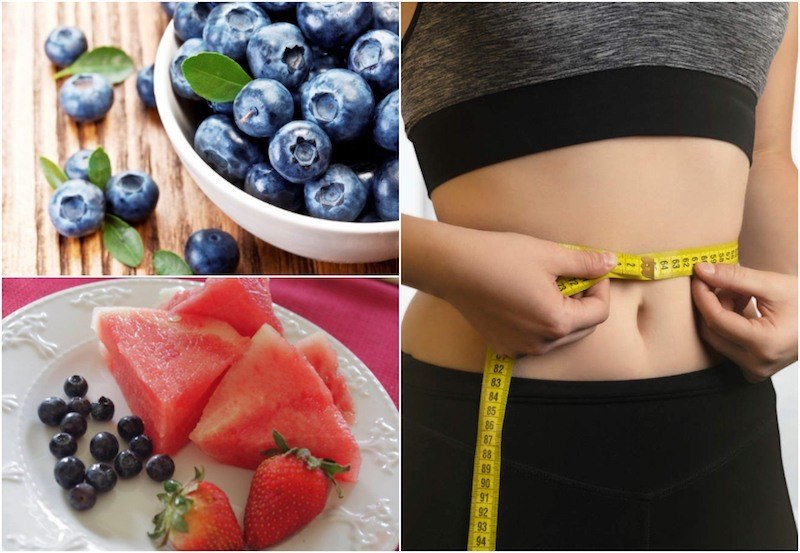
Right Way To Eat Fruits on a Weight Loss Diet
There’s a lot of controversy surrounding the role of fruits with respect to weight loss – with a certain section of people claiming that most fruits have high sugar content that block fat burning, hence should be avoided completely. The opposite side says since it’s all natural sugar and a lot of nutrients, you can have as many and as much fruit as you can – after all “an apple a day, keeps the doctor away.” With dieters in a dilemma whether to include fruits in their diet, particularly banana, mangoes, and other seasonal fruits, it’s important to clear the air around the role of fruits in a weight loss diet.

Fruits are an indispensable part of a healthy diet and World Health Organization (WHO) recommends having 5 portions or 400 gm of fruit every day (for normal adults) and at least two servings of fruit per day for people who fall in the diabetic category. With the slandering of carbs, eliminating out fruits completely from the diet is being normalized. Fruits and vegetables are considered an essential part of a balanced diet, and just because you are trying to lose weight, shunning fruits completely does not make any sense and that’s because most fruits are packed with vitamins, essential minerals, and other nutrients that help with the fat-burning process, but the key lies in picking fruits with low glycemic index and practicing portion control with them as well. There is no dispute that you need to absolutely eat fruits on a daily basis even while dieting because most fruits come loaded with fiber which helps in curbing appetite and keeps gut bacteria healthy.
Why Fruits Are Good To Include in a Weight Loss Diet?
Most fruits are nutrient dense with loads of vitamins, minerals, antioxidants, and other nutrients. For example, Fruits like blueberries, strawberries, oranges, grapes have antioxidants that fight free radicals – when you have them on the plate, you would have to spend less on anti-ageing serums, creams, and botox treatments! Banana, the most controversial fruit of all, which people fear would lead to weight gain – has minerals like potassium, magnesium, fiber, and the amino acid tryptophan gets converted to serotonin (happy hormone) and would help you sleep better (good sleep = greater chance to shed extra pounds). Additionally, fruits help to suppress sugar cravings with their naturally-occurring fructose content. Fruits such as guava, kiwi, pineapple, etc., have minerals like copper that studies have found helps to move fat out of adipose cells into the blood to be used up as energy, it helps in the fat-burning process! Strawberries, cranberries, pineapple are good sources of iodine that help the thyroid gland function smoothly. Banana, apple, and berries have vitamin B12 that boosts metabolism that in turn burns more calories. Apricots, oranges, kiwi, pineapple, papaya, etc. have calcium content which recent studies say helps in breaking down more fat in the body. Most importantly, the fiber content in most fruits (apple, pears, strawberries, banana) keeps you fuller for longer and keeps appetite in check. Not to leave out avocado and coconut with healthy fats boost metabolism, curbs appetite, and prevent overeating. So, no matter what fruit, having a portion of fruit on a daily basis actually boosts the whole weight loss process. Also read “12 Things to Not Do if you Want your Weight Loss Diet to Work.”

Can you Lose Weight By Drinking Only Fruit Juices?
Fruits are undoubtedly packed with nutrients and healthy, but they still have natural “sugar” in them and that means still need portion control, and should be consumed in moderation. Fruits have a naturally-occurring sugar called “fructose,” which is metabolized by the liver, converted to glucose, and then only it raises blood sugar. Also, the fiber content doesn’t allow the spike in blood sugar the way other carbs do. But when you juice them out, you lose that precious fiber which causes the blood sugar to rise rapidly, spiking up insulin release, (which by the way is also a hormone that encourages fat storage in the body). Insulin’s job is not only to bring blood sugar to normal levels, it also helps store all the excess calories as fat. So, we would not recommend juicing out fruits, definitely do not encourage packaged juices that are labeled as “healthy and made from real fruits” because they are nothing but sugar shots in bottles and tetra packs.
Why you Should’t give up on Fruits Even While Dieting?
Fruits are nutritionally dense which means they come loaded with vitamins, minerals, fiber, antioxidants, required for optimum health. All fruits have some level of fiber, that help you to feel fuller for longer and helps keep appetite in check. However, when trying to lose weight through dieting, make sure you are picking low-glycemic fruits. Now, what are low glycemic fruits? The glycemic index is a way of determining how a food increases blood sugar levels in the body. A glycemic index of 1 to 55 is considered low and ideal for those who want to maintain a healthy body weight, lose weight, or want to lower their blood sugar levels. Fruits that fall between 1 to 55 range are considered to be low-glycemic fruits which do not cause huge spikes in blood sugar levels. Cherries (GI 20), grapefruit (GI 25), pears (GI 38), oranges (GI 40), strawberries (GI 41), apples (GI 38), blueberries (GI 53), mangoes (GI 51), avocado (GI 15), guava (GI 12). The most controversial fruit, banana has a GI of 51, which falls into the low-moderate category.
There’s another factor that you need to consider with fruits, their glycemic load! Watermelon has a high GI of 72, but the carb count is low per serving, and therefore the glycemic load is low, which means it doesn’t have a major effect on blood sugar. According to wikipedia, “Glycemic load accounts for how much carbohydrate is in the food and how much each gram of carbohydrate in the food raises blood glucose levels. Glycemic load is based on the glycemic index (GI), and is calculated by multiplying the grams of available carbohydrate in the food by the food’s glycemic index, and then dividing by 100.”
Though watermelon has a high glycemic index (GI), the carb count is pretty low per serving, and that’s why has a low glycemic load. Glycemic index of 20 and above is high, while glycemic load below 11 is considered low. Watermelon’s glycemic load when calculated is low at 5! So, there’s no reason to shun watermelon now.
6 Ways To NOT Eat Fruits While Trying To Lose Weight:
1. Juicing Fruits Instead of Eating Them Whole: Fruit juices, even, the freshly-squeezed ones are not nutritionally equal to whole fruits because the juicing process gets rid of the fiber content, which is so necessary to keep the digestive system healthy because it helps in active absorption of nutrients, in preventing blood sugar spike, and it also keeps the healthy bacteria happy. So, whole fruit is the best way to eat your fruit, avoid juicing them out.
2. Candied Fruits: Candies that claim to be made from real fruits are nothing but desserts with high amount of calories, covered in sugar syrup, that raise blood sugar really high, and they are extremely bad for weight loss.
3. Packaged Juices with the “made from real fruits” Tag: Packaged fruit juices are not only high in sugar, they might also have preservatives, artificial flavours and colors. Also, there’s no fiber either. Daily recommended portion of fruits should come from real fruits instead of packaged juices from supermarket aisles. Also read “6 High Sugar Fruits to Avoid for Weight Loss.”
4. Canned Fruits in Sugar Syrup: Some people do think canned fruits are healthy! But how can fruits that are soaked in sugary syrup with zero nutritional value be good for you? They are the easiest way to gain weight and build up belly fat.
5. Jams That Claim to Be Made From Real Fruits: Now, clever marketing strategies may misguide us into believing that jam bottles can have the goodness of natural fruits in them, but their high sugar content and preservatives run down their healthy claims. Needless to mention, regular consumption (bread and jam!) will lead to weight gain.
6. Dried and Dehydrated Fruits in Cereals: There is little to absolutely no nutritional value in dry and dehydrated fruits that come in packaged, processed, and ultra processed food. Do not pick cereals just to get the goodness of fruits from them.
Summing up, it’s a wrong notion that you should avoid fruits when trying to lose weight. You should try to meet the daily recommended intake, and keep in mind the portion size each time. Most importantly, to get maximum benefits and nutrients out of fruits, eat them whole! Also, if weight loss is on your mind, follow the Rati Beauty diet to shed weight and lose inches as well. Download the Rati Beauty app for more details.
12 Things to Not Do if you Want your Weight Loss Diet to Work
6 High Sugar Fruits to Avoid for Weight Loss
